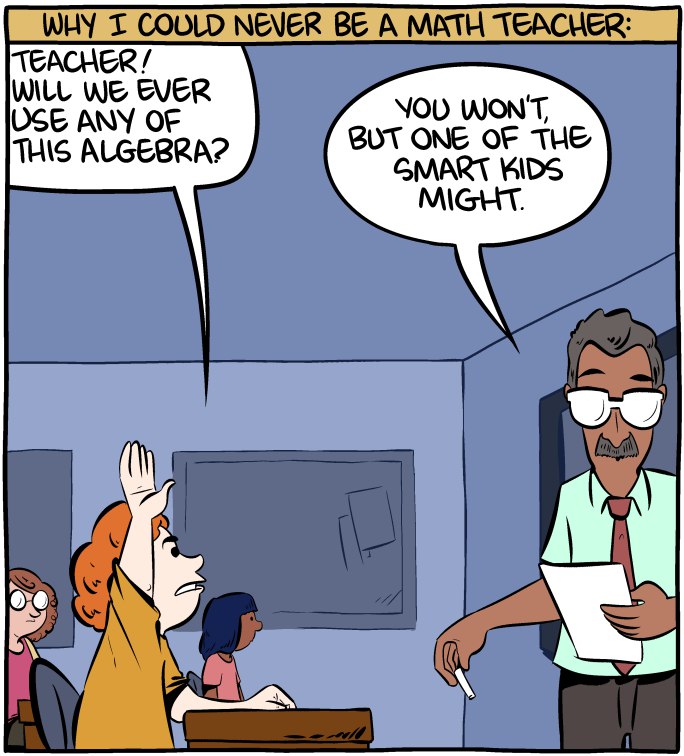Join devRant
Do all the things like
++ or -- rants, post your own rants, comment on others' rants and build your customized dev avatar
Sign Up
Pipeless API

From the creators of devRant, Pipeless lets you power real-time personalized recommendations and activity feeds using a simple API
Learn More
Related Rants

 Math is hard.
Math is hard. When you wanted to know deep learning immediately
When you wanted to know deep learning immediately :)) finally a good answer
:)) finally a good answer
So I made a couple slight modifications to the formula in the previous post and got some pretty cool results.
The original post is here:
https://devrant.com/rants/5632235/...
The default transformation from p, to the new product (call it p2) leads to *very* large products (even for products of the first 100 primes).
Take for example
a = 6229, b = 10477, p = a*b = 65261233
While the new product the formula generates, has a factor tree that contains our factor (a), the product is huge.
How huge?
6489397687944607231601420206388875594346703505936926682969449167115933666916914363806993605...
and
So huge I put the whole number in a pastebin here:
https://pastebin.com/1bC5kqGH
Now, that number DOES contain our example factor 6229. I demonstrated that in the prior post.
But first, it's huge, 2972 digits long, and second, many of its factors are huge too.
Right from the get go I had hunch, and did (p2 mod p) and the result was surprisingly small, much closer to the original product. Then just to see what happens I subtracted this result from the original product.
The modification looks like this:
(p-(((abs(((((p)-(9**i)-9)+1))-((((9**i)-(p)-9)-2)))-p+1)-p)%p))
The result is '49856916'
Thats within the ballpark of our original product.
And then I factored it.
1, 2, 3, 4, 6, 12, 23, 29, 46, 58, 69, 87, 92, 116, 138, 174, 276, 348, 667, 1334, 2001, 2668, 4002, 6229, 8004, 12458, 18687, 24916, 37374, 74748, 143267, 180641, 286534, 361282, 429801, 541923, 573068, 722564, 859602, 1083846, 1719204, 2167692, 4154743, 8309486, 12464229, 16618972, 24928458, 49856916
Well damn. It's not a-smooth or b-smooth (where 'smoothness' is defined as 'all factors are beneath some number n')
but this is far more approachable than just factoring the original product.
It still requires a value of i equal to
i = floor(a/2)
But the results are actually factorable now if this works for other products.
I rewrote the script and tested on a couple million products and added decimal support, and I'm happy to report it works.
Script is posted here if you want to test it yourself:
https://pastebin.com/RNu1iiQ8
What I'll do next is probably add some basic factorization of trivial primes
(say the first 100), and then figure out the average number of factors in each derived product.
I'm also still working on getting to values of i < a/2, but only having sporadic success.
It also means *very* large numbers (either a subset of them or universally) with *lots* of factors may be reducible to unique products with just two non-trivial factors, but thats a big question mark for now.
@scor if you want to take a look.
random
math